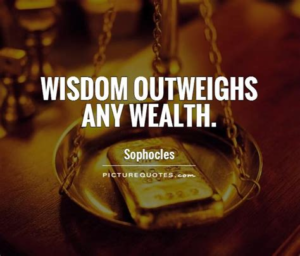
Marty Levine
November 14, 2022
Wealth buys power and influence but it does not equate to wisdom and expertise. The assumption that it does has become a dangerous flaw in our society. Too often there is an assumption that if a man or woman has great wealth, they are experts in any field they wish to play on, that they should be listened to when they speak about social policy or enter the world of politics. In a world in which those with great wealth are allowed to buy more political influence than you or me because we have refused to limit what they can spend on political campaigns and on lobbying, we should not ever assume that they have better answers or that they are doing more than protecting their own self-interest. Nor should we confuse their ability to give large sums philanthropically with expertise in health, the environment or social welfare services.
If that seems harsh, consider what we have learned in just the past few weeks.
As his creation, Meta (nee Facebook) grew into an economic and social behemoth, Mark Zuckerberg could do little wrong. We took his visions as inspired and because of the company’s economic success we saw his desire to redesign our culture and political system in his image as “an inspiration to those thinking about how they can change the world with their ideas.”
In his “Founders Letter” of 2012 how he saw his business venture as more just a money-making venture.“ Facebook was not originally created to be a company. It was built to accomplish a social mission — to make the world more open and connected….Facebook aspires to build the services that give people the power to share and help them once again transform many of our core institutions and industries….We think the world’s information infrastructure should resemble the social graph — a network built from the bottom up or peer-to-peer, rather than the monolithic, top-down structure that has existed to date. We also believe that giving people control over what they share is a fundamental principle of this rewiring…We hope to change how people relate to their governments and social institutions. We believe building tools to help people share can bring a more honest and transparent dialogue around government that could lead to more direct empowerment of people, more accountability for officials and better solutions to some of the biggest problems of our time.”
We now know the information chaos, the “alternative facts” and the disinformation that Facebook has facilitated has had serious negative societal and political implications that Zuckerberg neither anticipated nor effectively moved his organization to mitigate. The Guardian observed this danger months before the 2020 Presidential election, “In every political debate since Facebook began to dominate democracy, the company has placed itself on the wrong side of history. The social media firm cannot be reformed from within because its business model profits from hosting bomb-throwing circuses of hate, humbug and hogwash. The platform harvests users’ personal data to algorithmically recommend content but can’t seem to help steering people towards vilifying one another while keeping their attention. It is not good for society, but it is good for Facebook.
That apparently is fine for the company’s founder, Mark Zuckerberg because little has changed. We now know that he was not more capable than others who recognized the danger much earlier than he did and we know that he was not wise enough to heed the warnings that were directed his way.
And now we know that even on a pure business basis Mr. Zuckerberg is a flawed leader.
Last week He announced that Meta, the new name for Facebook, needed to lay off 11,000 workers as its revenues and profits fell sharply. Zuckerberg, in a letter to all Facebook employees took responsibility and explained what he had misjudged, “I want to take accountability for these decisions and for how we got here. I know this is tough for everyone, and I’m especially sorry to those impacted…At the start of Covid, the world rapidly moved online and the surge of e-commerce led to outsized revenue growth. Many people predicted this would be a permanent acceleration that would continue even after the pandemic ended. I did too, so I made the decision to significantly increase our investments. Unfortunately, this did not play out the way I expected. Not only has online commerce returned to prior trends, but the macroeconomic downturn, increased competition, and ads signal loss have caused our revenue to be much lower than I’d expected. I got this wrong, and I take responsibility for that.”
In a Wired analysis of Meta (Facebook)’ s decline they pointed out that the problems went well beyond misreading the COVID-caused ripples. “Today’s news isn’t only a correction of the pandemic years,’ says one former Meta employee with knowledge of the company’s operations, who left shortly before the layoffs were announced and spoke anonymously because his current employer would not grant him the right to speak on the record to WIRED. ‘I would say it’s probably the last five to 10 years’—originating even before Zuckerberg’s Metaverse obsession. Some of the losses can be attributed to the sheer range of risky and failed experiments the Facebook, WhatsApp and Instagram parent company has conducted over the years, the former employee says. ‘I just can’t think in the last five years of a successful Meta app or feature that wasn’t acquired,’ the ex-employee says—before suggesting Stories, perhaps, which itself was borrowed from Snapchat.”
In the same week Sam Bankman-Fried went from being an influential savant to being a pariah. Just days ago Forbes saw him as a star in the world of Crypto-currency whose skills were saving a struggling field giving him great wealth. “Few names in the world of cryptocurrency are more recognizable than Sam Bankman-Fried. With a net worth of nearly $17 billion, Bankman-Fried is on the list of the 100 wealthiest people at only 30 years old…SBF, as he is often called in the industry, perfected crypto arbitrage strategies before going on to found several high-profile projects.”
His wealth allowed him to become a major political player whose voices was heard in the halls of power. Here’s how the Washington Post described his growing influence. “The 30-year-old emerged as one of the Democratic Party’s top donors this election cycle and in recent months became the crypto industry’s self-appointed ambassador to Washington. Pledging transparency and cooperation, he was a major force in advocating for a bipartisan Senate bill that would hand significant authority over crypto to the Commodity Futures Trading Commission. He also gave close to $40 million to left-leaning political action groups, including $27 million to his own Protect Our Future PAC, which focuses on pandemic preparedness and crypto policy.”
And then, just days after the Forbes article that extolled him as a star to be followed, he became a pariah because his business crashed and his wealth evaporated. According to MSN “Rep. Jim Himes, D-Conn., a member of the House Financial Services Committee, said it’s clear Bankman-Fried will lose his access to lawmakers on Capitol Hill as investigators uncover what happened. ‘Now you see the Washington darling, who knew people, mainly Democrats, and that persona, just evaporate,’ Himes said. When asked what Bankman-Fried was like to meet with, Himes said, ‘he was your classic founder. Nerdy genius and you assumed he had twice the IQ you did.’”
In hindsight, its clear there is reason to question the omniscience of Mr. Zuckerberg and Mr. Bankman-Fried. But we need to take this as a lesson for the future.
In comments to Time in 2010, the year that magazine named him Person of the Year even Zuckerberg seemed to recognize what we should all know. “Why were we the people who were most qualified… I mean, that’s crazy. I guess what it probably turns out is, other people didn’t care as much as we did.”

Helaine Olen writing in Sunday’s Washington Post gave us a prescription for the cynicism we should have about the meaning of wealth. “But they are way less special than they are frequently told. (Some are just heirs, or lucky Powerball winners.) As our men of business become more prominent and wealthier, they enter a feedback loop. Sycophants flatter instead of challenging them. This impacts their ability to hear criticism. And that leaves them more likely to cling to toadies who feed their now inflated self-image. All too often, the end result is ever larger mistakes and more ethically dubious behavior.”
All of us should take this lesson seriously as we read about Bill Gates, or Elon Musk, or McKenzie Scott or the next person we are ready to put on another pedestal.

Your article helped me a lot, is there any more related content? Thanks!